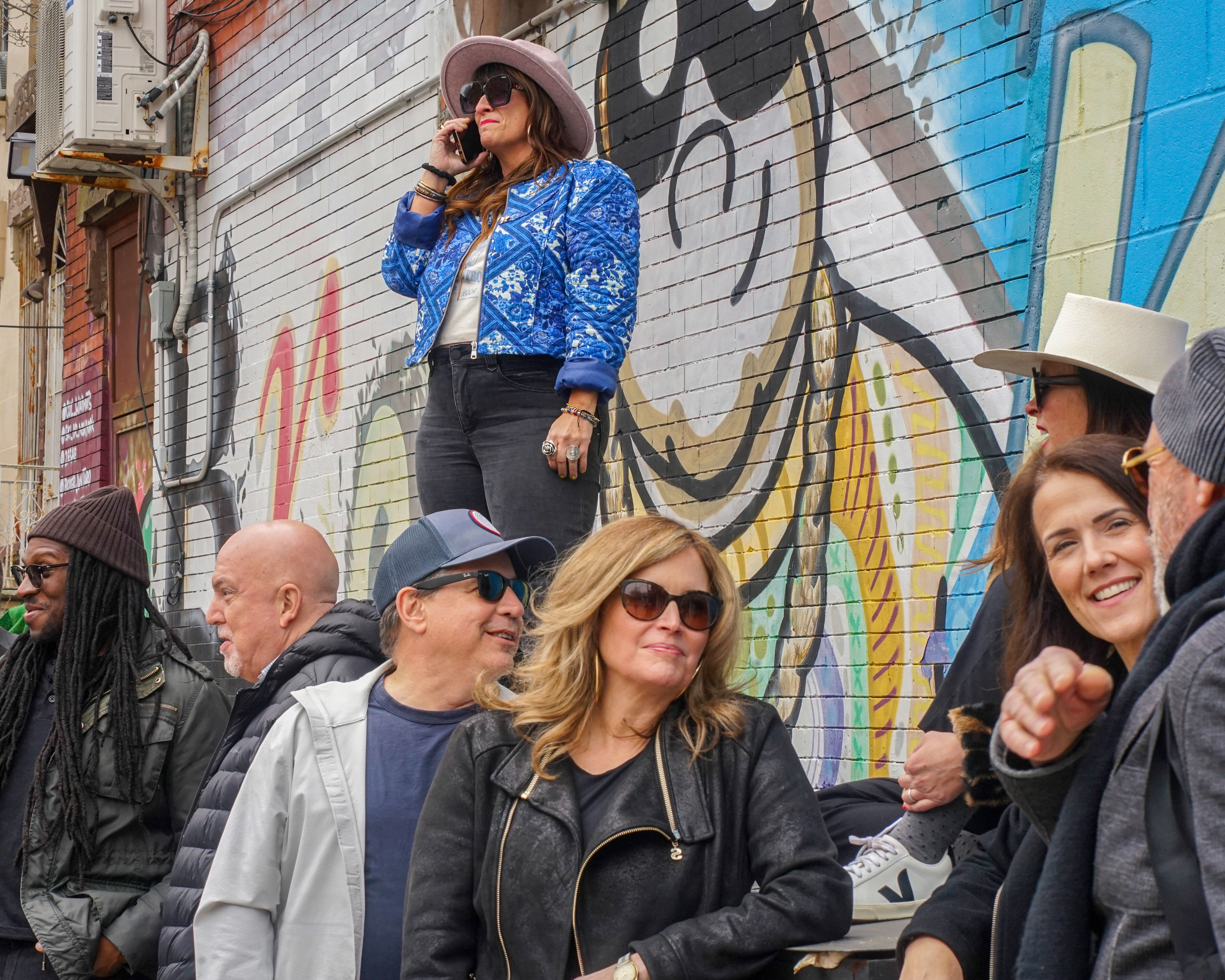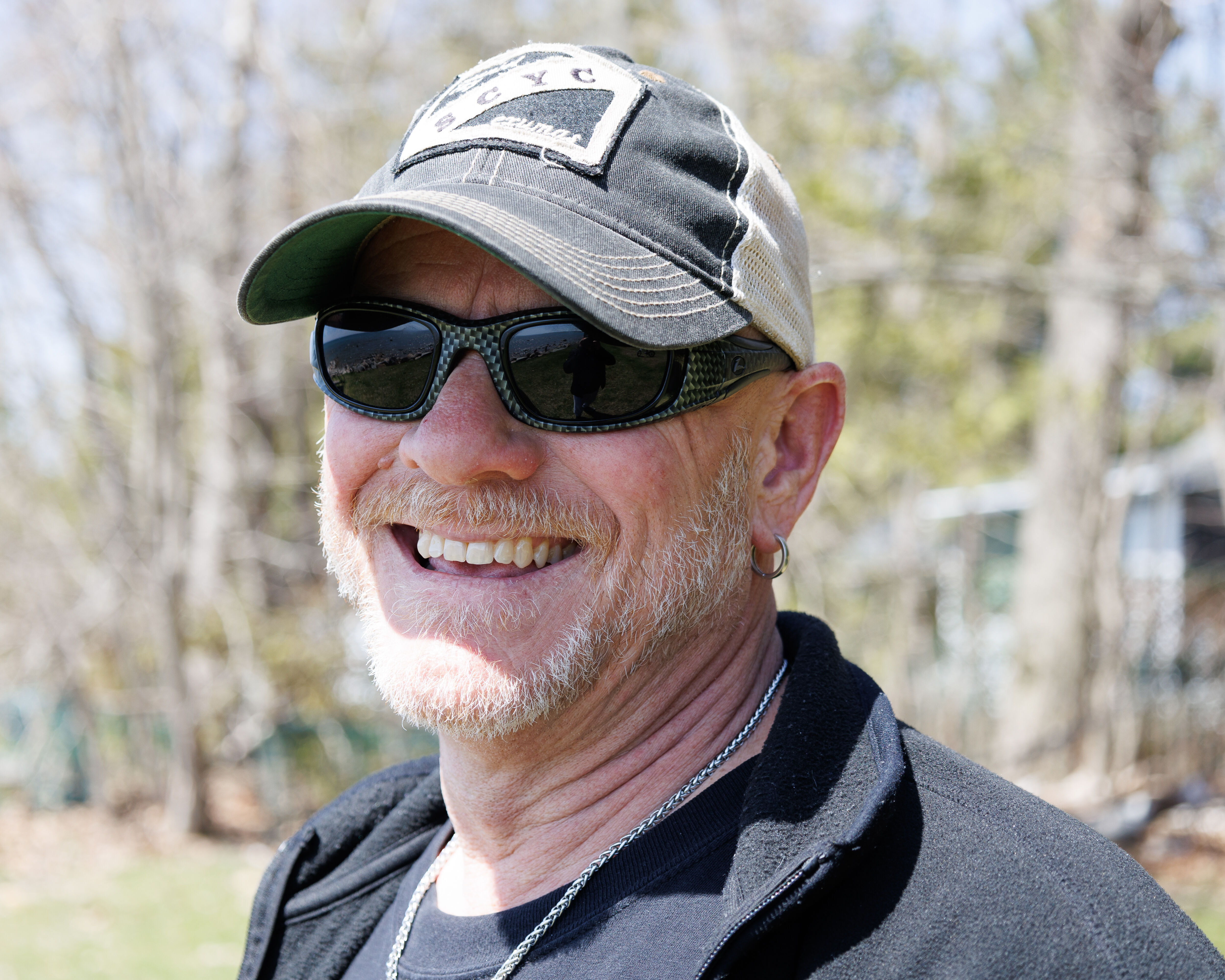Is Joy something you can quantify, or is it just something you feel?
For me, I want to feel it, but I was open to suggestions on ways I might find it through the experience – or research – of others.
Examples of research around happiness and well-being abound, much of it focusing on themes around the relationship between external circumstances and internal contentment; the impact of social connections on well-being; and strategies for cultivating positive emotions and even resilience.
Perhaps those of us who feel Joy “less” as we get older – those of us who may not have grandchildren or have lost a spouse, job, or a child – can learn something from these studies.
The BIG JOY project is a collaboration between UC Berkeley’s Greater Good Science Center, Mission Joy (led by activist filmmaker Peggy Callahan) and other research institutions including Harvard and the University of California, San Francisco (UCSF). They’ve seen 102,000 participants in 212 countries commit nearly 417,000 “micro-acts” of Joy – many of whom experienced a significant in emotional well-being over the course of a week.
Researchers see these micro-acts are “tools at our fingerprints” that can be used to relieve feelings of stress, anxiety, and worry. Their exploration of Joy includes such daily practices as playing, expressing gratitude, being present (through meditation or deep breathing), enjoying nature, helping or celebrating others, establishing routines you look forward to like family game nights), reducing negativity, and doing positive reframing.
Older people start off with greater well-being while people who are younger than 50 tend to benefit more from micro-acts, Darwin Guevarra, Ph.D., who worked with The BIG JOY Project before moving to Miami (OH) University, told me.
“Older adults’ priorities change as they get older to more emotionally meaningful goals and relationships rather than long-term achievements,” Guevarra told me. “Older adults also tend to focus more on positive experiences and memories. There’s a maturation in self-regulation systems that make life’s challenges less difficult.”
So maybe most of you aren’t feeling the same way I am. I hope that’s the case. That said, I tried some of these. They gave me temporary bursts of positive energy, but I didn’t find a greater sense of enduring joy. Maybe they will for you if you click on that link above.
Then there’s Marquette University Professor Melissa Shew, who has conducted research into “Intellectual Joy,” interviewing female students in Marquette’s Executive MBA program, where participants have an average of 15 years of management experience.
Shew led a research team focused on “intellectual joy” for women in the workplace. She defines Intellectual Joy as “a satisfaction in coming to understand oneself and appreciate another person in their individual and shared capacities to think and know.”
What there’s obviously a bit of a gap in target audiences from this 65-year-old White guy, some ideas can be pulled from one of her student’s decision to go to a Hispanic Professionals of Greater Milwaukee event that “increased her Joy significantly, pushing her to want to help that community grow, her company grow, and to continue developing herself into the type of person who can make change happen.”
The concept of Intellectual Joy also encouraged her to not be fearful of being Authentic in a professional environment, something that she has closed off in the past,” Shew said.
That’s not my problem exactly – in some ways, I can be too authentic (ok, too willing to die on a hill over minor things) – but Shew’s research did find that many women — even highly accomplished professionals — experience uncertainty and frustration about how their ideas are received and valued.
The student told Shew, “I am working on turning accountability, adoration, and amplification inward, to find contentment with what is, knowing that what will be is still worth pursuing, but not at the expense of failing to see and experience current moments of Joy.”
Dr. Jamee Rodgers, president and CEO of the Urban Neighborhood Initiative in Kansas City, believes nonprofit leaders can reclaim Joy in their mission-driven work by balancing the challenges of nonprofit work with self-investment, enjoying the journey, and celebrating the small victories.
“A CEO I coached felt burnt out after 15 years. We found he needed a sabbatical,” Rodgers told me recently. “During his 30-day journey, he visited other organizations, spent time with family, and reflected alone. He remembered his early career passion and cried, realizing he’d lost his purpose. To reconnect, he volunteered in communities. This brought back his Joy and drive.”
The lesson, says Rodgers: “Remember your ‘why’ and do things that bring you Joy.”
I think that’s good advice, even though I’m struggling to do that with a current client who keeps changing direction and heading down paths I’d prefer not to go or failing to adhere to basic boundaries. The answer there is easy: Decide whether the income in an uncertain employment world is worth the frustration OR figure out how to not let it overwhelm other parts of my life.
I’ve been realizing lately that I haven’t expressed as much gratitude working from home as I did when I was in the office pre-pandemic.
Akiya Northern, a chaplain and doctoral candidate at Loma Linda University (why do most of these joy studies seem to be coming out of California?) explored medical students’ joys and challenges as they were expressed during Reflection Rounds, a required course for medical students taking their core clinical clerkships at Stanford School of Medicine.
In exploring joy, researchers examined the relationship between joy and gratitude. The research indicates that joy can increase gratitude and gratitude can increase joy, suggesting an “intriguing upward spiral” between the two, according to Northern.
Northern told the Stanford Lifestyle Medicine publication, “Preliminary results from my research showed that medical students’ expressed joy when they were grateful for teachers, peers, and for the profession of medicine, but especially for their patients”
Finally, I came across research from Dr. Judith Moskowitz of Northwestern University’s Feinberg School of Medicine who is studying how small positive interventions can help people cope during difficult situations. For example, she taught a five-week course focused on providing coping mechanisms for caregivers caring for sick loved ones.
If you’re in that situation – and many of my peers are – it’s worth investigating such classes. I will say – and it’s not the same thing – that I’ve felt better reaching out to friends going through difficult career times. And I hope it’s brought them comfort too.
Share this Article!
More Articles




